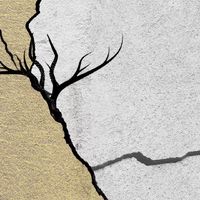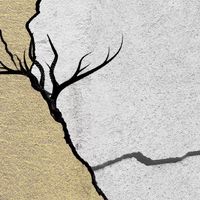-
Supplementary Archival Project
This project is the work of the Knowledge Management Team. It aims to provide supplementary information to the work of the various research teams within the Centre. Due to the nature of the team's work they can spot gaps in the content being curated for the archive. Where possible the team has undertaken to generate archival information in order to provide a more comprehensive knowledgebase.
-
Affiliated Project Work
The scholarship of primary researchers associated with the San & Khoi Centre can afford its members to participate in projects not initiated by the Centre. Such projects are clustered here.
-
Decentralisation of Knowledge
This project ensures that there is more than one digital platform people can access the indigenous knowledge managed by the San & Khoi Centre. The aim of this project is to widen access to the knowledge and information housed on the various platforms and to decrease the possibility of gatekeeping information and knowledge hoarding.
-
Digital Archive Development
The scope of the archival project includes: (i) showcasing the transition from the colonial to decolonial representation of indigenous knowledge by presenting the knowledge produced in the colonial paradigm alongside the knowledge produced within an indigenous perspective; and (ii) the use of mainstream tools to create an open access digital archive of indigenous knowledge and languages. The objectives of the project include: (a) The social integration of indigenous communities with integrity within the larger conceptualisation of knowledge; (b) To provide a platform to include the voices and perspectives of silenced and marginalised in traditional archival practises and knowledge production mechanisms; (c) To widen access to the knowledge produced for the archive through the employment of mobile and alternative technologies; and (d) To provide an example of a decolonial archive in practice.
-

Khoekhoegowab Teacher Training Internship
The internship offered has two components: (i) a four-week Khoekhoegowab proficiency training programme and (ii) gaining practical experience teaching a foundational Khoekhoegowab short course. The proficiency training programme builds on participants pre-existing language knowledge gained from attending the Introduction to Khoekhoegowab Foundational Course. The focal shift is from learning for self development to learning in order to support the language development of others. Once the course is completed interns teach two of the short courses under the supervision of the primary language instructor.
-

Community Review of the Archive
Members of the Nǀuu and Khoi communities are critical participants in the archive’s content development. To further ensure that the archive represents the knowledge and cultural interests of the communities, community review engagement processes of the site is undertaken after critical rounds of development. Participants included past students of the Foundational Khoekhoegowab language course offered by the San and Khoi Centre since 2019 and members of the A\Xarra Restorative Justice Forum. The ongoing community engagement process hopes to ensure that the content is critically engaged with and that descendant communities contribute to the knowledge production processes of the archive on their terms towards intellectual sovereignty to foster decolonisation.
-
Midwifery Oral History Project
The indigenous and traditional knowledge and practices of midwives from the Northern Cape, South Africa, is recorded for archival purposes. The aim of the project is to document and preserve this knowledge that has been replaced by mainstream childbirth practices and is subsequently being lost.
-
Endangered Languages Preservation
The preservation of indigenous languages is an important component of indigenous knowledge preservation.
-
Typing Tools
-
Dictionary
-
Two Rivers Urban Park Heritage Project
To create a memory archive reflecting the relationship between the land known as the Two Rivers Urban Park and the indigenous and local communities. This collection within the archive is part of the wider endevours to correct the social narrative distorted by the colonial, apartheid, and capitalist agendas while building a database of orally transmitted knowledge and living memory showcasing the integral relationship between communities which were displaced through these disruptive mechanisms. The Two Rivers Urban Park Project is contextualised within the greater preservation strategy of the confluence area of Liesbeek River and Black River, with its tributary Salt River. The land is the site of active contestation. On the one side is a movement to strengthen its heritage status and on the other side is a development plan by the Liesbeek Leisure Property Trust with the Amazon Development Company as the main tenant on the site.
-
Indigenous Knowledge Sharing and Community Building Events
The San & Khoi Centre hosts authors and artists providing them with a platform to showcase their work. These events are aimed at restoring the integrity of the indigenous communities and their knowledge system.
-
San & Khoi Special Collection: Digital Library
This Endangered Languages Digital Library[1] is a special collection showcasing all the published information and knowledge resources, formally and informally, ever done on the subject of southern African communities whose cultural heritage and language have become endangered. This library has two unique aspects: 1. An open-access library of full-text resources; and 2. A catalogue that directs people to available knowledge and information resources which do not reside in the public domain. Copyright Issues: If there is any relevant information resource that you have ownership of and would like to make it discoverable and accessible via this library then please complete the submission form, below, to participate in this process of information and knowledge sharing. [1] The works housed on this collection exist in the public domain due to the following reasons: - Its copyright license has expired. - It was published by either the author or the publisher using Gold or Green Open Publishing standards and platforms. - It was published under a Creative Commons License. - Permission was given by the relevant author(s) and/or publisher to make the work available to the public through our digital library.
-
Protecting Human Rights Defenders Seminar Series
Protecting human rights defenders is a seminar series that spotlights the lived reality of human rights defenders. People who are active in spectrum of activism roles share their lived experiences and the challenges associated with fighting for justice. The aim of the series is to create a living memory database connecting diverse voices to provide a reality-based perspective of activism in all its manifestations within society.
-
Sarah Bartmann Fellowship
The story of Khoe woman Sarah Baartman, and the fate she suffered at the hands of 19th century colonial violence, is well known globally. However, indigenous decolonial scholarship on the San and Khoe is emergent. The launch of the San and Khoi Centre by the Vice Chancellor of the University of Cape Town in September 2020 is therefore of national significance for research and knowledge production on indigenous feminist epistemologies in honour of the life of Sarah Baartman and what it represents for decolonization. UCT’s Sarah Baartman Hall (graduation hall), formerly the Jameson Hall, was renamed two years ago to acknowledge this history. This process was led by the A/XARRA Restorative Justice Forum, a community knowledge partnership with the university. The fellowship was established to honour the life and legacy of Sarah Baartman (c.1789 – 1815) as symbolic of feminist restorative justice and transformation in higher education in South Africa. The establishment of the fellowship by the university’s research office is a direct response to meet the agreement made with communities in the endorsement of the naming of Sarah Baartman Hall in 2018. Dr Barbere Chacha of Laikipia University, Kenya, was the first recipient of the fellowship award during the period of 1 July 2022 to 30 September 2022.
-
Deep Listening Research Methodologies Project
This project originates from the Worldwide University Network research project on ‘deep listening’ (based on the research concept of Aboriginal Australian scholar Miriam Ungummer-Rose) and was funded through research applied for by the WUN research team in collaboration with researchers Judy Atkinson and Tracy McIntosh.
-
Indigenous Animal Names Collection
This resource is intended to promote and restore the cultural legacy of the San and Khoi people and to highlight the connection between people, animals and places. The collection of animal names is presented with its various San and Khoi language representations. [1] This resource is still in its ongoing development process as with all data in this archive, and will include the extension of the collection of animal names in other indigenous southern African languages. [1] The information presented here is collected from the book “Of the same breath: Indigenous animal and place names” with the kind permission of its author Lucy A. Möller and publisher Sun Media to promote and restore the cultural heritage of the Khoi and San.
-
100 Stories: Related to Indigenous Place Names
This dataset provides a user-friendly summary of the stories related to places names as can be found in Raper and Nienaber's Toponymica Hottentotica. Only those stories that easily read as stories ahev been included in this project extension. The questionable naming conventions used in the orginal source material has been replaced wth the more acceptable term "Khoisan". It is acknowledged that the use of "Khoisan" is still contested and the possibility exists that the use of this term may change with the clarity that emerges from the self-determination stage of indentity reconstruction.
-
Map of Indigenous Place Names
Through an interactive map [1] this digital archive showcases San and Khoi southern African place names within the Khoekhoegowab language. The following factors inform San and Khoi place names: Significant mountain and river geographic landmarks - for example, Bikamma which translates to ‘Milk River’. Plants - for example, Daweb which describes a place with Daweb or Abikwa trees. Animals - for example, Gamkamma which translates into English as ‘Lion Water’ or ‘Lion’s River’ and translates into ‘’Leeurivier’ in Afrikaans. Specific historical, tragical or spiritual occurrences that took place in the area - for example, ǀGoanǁgoes which translates into Afrikaans as ‘Kinderlê’ which is descriptive of the children lying everywhere after a historic incident where women and children were slaughtered in the area. Water bodies and features - for example, Auǁgami Today the traces of these names can still be found in current Afrikaans place names that have been directly translated from the original Khoekhoegowab name given to a specific area. The next round of development on this aspect of the San & Khoi Digital Archive is to categorise the place names according to the naming convention from San and Khoi community perspectives and the telling of ‘100 stories’ of the landscape (especially from an African indigenous feminist perspective) which link to these endangered languages. Further reading on the topic of pre-colonial place names see the links provided. [1] This dynamic map is based on the series of works by the late Professor Gabriel Nienaber and Professor Peter Raper entitled Toponymica Hottentica published by the Human Sciences Research Council.
-
Introduction to Khoekhoegowab Foundational Course
This is an introductory course offering participants the opportunity to learn conversational Khoekhoegowab. The course is not only an opportunity to learn a language but also an opportunity to connect with indigenous heritage which many San and Khoi descendants have been disconnected from due to colonial epistimicide.
-
Supplementary Archival Project
-
Affiliated Project Work
-
Decentralisation of Knowledge
-
Digital Archive Development
-

Khoekhoegowab Teacher Training Internship
-

Community Review of the Archive
-
Midwifery Oral History Project
-
Endangered Languages Preservation
-
Typing Tools
-
Dictionary
-
Two Rivers Urban Park Heritage Project
-
Indigenous Knowledge Sharing and Community Building Events
-
San & Khoi Special Collection: Digital Library
-
Protecting Human Rights Defenders Seminar Series
-
Sarah Bartmann Fellowship
-
Deep Listening Research Methodologies Project
-
Indigenous Animal Names Collection
-
100 Stories: Related to Indigenous Place Names
-
Map of Indigenous Place Names
-
Introduction to Khoekhoegowab Foundational Course



